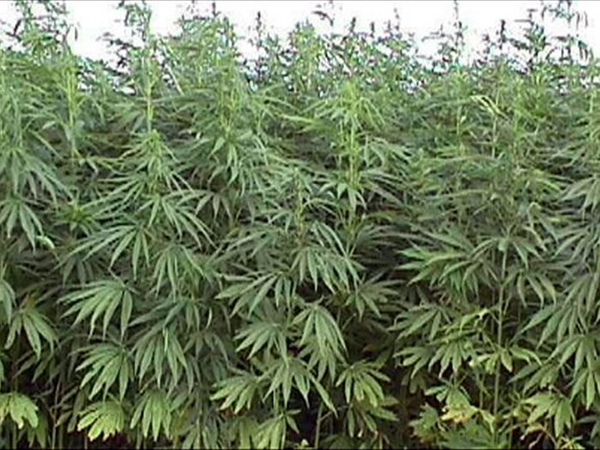North Carolina House, Senate Pass Industrial Hemp Bill
Hemp Inc., Las Vegas, Nev., USA, announced this week that North Carolina
Senate Bill 313 passed the House on September 28 (with a vote of 101 to 7) and the Senate on September 29 (with a vote of 42 to 2) in favor of the proposed Industrial Hemp legislation in North Carolina. According to the North Carolina Industrial Hemp Association (NCIHA), "this legislation will authorize an industrial hemp pilot program within the state of North Carolina and establish the Industrial Hemp Commission (IHC) to be followed by pilot program participants." IHC will implement the university research program.

Passed by both the House and the Senate, Industrial Hemp Senate Bill 313 awaits final approval from Governor Pat McCory. If approved by the governor, the state will then establish its Industrial Hemp Commission to oversee the pilot program. This commission, reportedly, will work with the North Carolina Industrial Hemp Assn. (NCIHA), of which David Schmitt, COO of Hemp Inc.'s subsidiary Industrial Hemp Manufacturing LLC in Spring Hope, N.C., is on the board of directors.
Bruce Perlowin, CEO of Hemp Inc., said that "we couldn't be more excited. Just one day after the House approved the bill, it was approved by the Senate. This is a major accomplishment for the state. Years ago, the Senator Stan Bingham attempted to pass an Industrial Hemp bill but North Carolina's law enforcement opposed it and that buried the bill. Now, there are no objections to it. People are being educated on the myriad benefits of industrial hemp, including how it can help the economy. I believe we'll see less objections across the country as more people begin to understand what hemp is and how it can benefit them as an individual and how it benefits their community. Our multipurpose hemp processing plant is the only one in the state, so we are thrilled."
Per the Bill, the General Assembly declared that promoting and encouraging the development of the industrial hemp industry are in the best interest of North Carolina residents. The industrial hemp industry can "expand employment, promote economic activity, and provide opportunities to small farmers for an environmentally sustainable and profitable use of crop lands that might otherwise be lost to agricultural production."
The bill also states it seeks to "establish an agricultural pilot program for the cultivation of industrial hemp in the State, to provide for reporting on the program by growers and processors for agricultural or other research, and to pursue any federal permits or waivers necessary to allow industrial hemp to be grown in the State."
"This is exciting news for North Carolina farmers who will be able to cultivate industrial hemp again for the first time in 71 years," said Thomas Shumaker, executive director for NCIHA. "We would like to thank everyone who supported our organization throughout this effort, especially North Carolina Agriculture Commissioner Steve Troxler and his team for their hard work and support in making this a reality."
Hemp Inc.'s multipurpose industrial hemp processing plant in Spring Hope, North Carolina is 80% complete. German engineer, Jens Kleinert of Temafa Machines, the manufacturer of Hemp Inc.'s decortication machine, says he was quite surprised that it was able to be installed in such a short amount of time. This is Kleinert's third time visiting the plant to monitor the re-installation and has since derived a list of final tasks that need to be done.
The hemp processing plant continues to be prepped for maximum operational efficiency. An electrical contractor is currently on site assembling the electrical wiring. Thus far, 50% of the wiring has already been laid in the cable trays.
The fact that hemp is not yet legal in North Carolina played no role in setting up shop in North Carolina. Executives say the company will process kenaf until Senate Bill 313 goes into effect. "Even with the kenaf, we expect it to produce millions of dollars in revenue a year, which is already legal and very lucrative," said Perlowin.
From hemp historian John Dvorak's research, in 1619, it was illegal not to grow hemp in Jamestown, Virginia because it was one of the country's most valuable resources. Colonists were ordered to grow 100 plants specifically for fiber export. States actually encouraged hemp cultivation. However, marijuana prohibition and the dominance of the cotton industry set in. Today, Americans want to take advantage of the lucrative hemp cash crop.
TAPPI
http://www.tappi.org/

